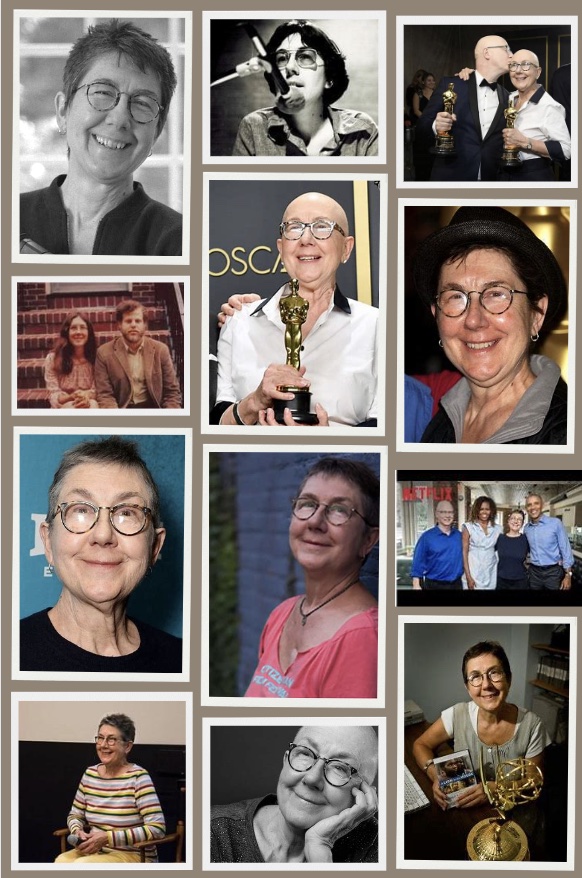 Our community is poorer for the loss of Julia Reichert. The world knows her as an award winning documentary filmmaker and celebrates her unwavering dedication to exploring issues impacting women and the working class.
Our community is poorer for the loss of Julia Reichert. The world knows her as an award winning documentary filmmaker and celebrates her unwavering dedication to exploring issues impacting women and the working class.Melissa Godoy, who worked as a line producer on “A Lion in the House,” “The Last Truck,” “American Factory,” and “9to5,” said Julia and Steve respected their collaborators and crew in the same way. “They value our lives, time and families, give credit, include us — even the little guys — in everything, and offer opportunities to grow as artists,” she said. “So for a woman who makes films about labor and women, Julia walk[ed] the walk.”
“American Factory” follows a Chinese billionaire opened a Fuyao factory in a shuttered General Motors plant in Dayton, Ohio. For thousands of locals, the arrival of this multinational car-glass manufacturer meant regaining their jobs—and dignity—after the recession left them high and dry. American Factory takes us inside the facility to observe what happens when workers from profoundly different cultures collide.
 At first, the culture clash is humorous. Transplanted Chinese workers attend trainings on dealing with their peculiarly casual and “chatty” American counterparts. But tensions mount. Slack safety standards and meager wages ignite serious doubts among the American rank and file. Low productivity and talk of unionization trigger a cascade of controls from Chinese management. Meanwhile, something ominous—the specter of job loss from automation—looms.
At first, the culture clash is humorous. Transplanted Chinese workers attend trainings on dealing with their peculiarly casual and “chatty” American counterparts. But tensions mount. Slack safety standards and meager wages ignite serious doubts among the American rank and file. Low productivity and talk of unionization trigger a cascade of controls from Chinese management. Meanwhile, something ominous—the specter of job loss from automation—looms.
With precision and astonishing access, directors Julia Reichert and Steven Bognar capture every key moment in this high-stakes intercultural chess game, revealing how American and Chinese workers view themselves within systems of authority. What results is an epic masterwork about the future of American labor and Chinese economic dominance, all within the confines of a factory in Ohio.
This film was acquired by the Obama’s production company, Higher Ground, and went on to win the 2020 Oscar for Best Documentary.

IndieWire shares “Reichert will be fondly remembered as an intrepid and courageous fighter for her colleagues and liberal causes — from women’s and worker’s rights to, more recently, Black Lives Matter, as shown in her yet-to-be-released final film with Bognar, the Untitled Dave Chappelle Documentary — as well as a tenacious filmmaker adept at capturing moments of extraordinary intimacy in concert with complex social-political issues.”
But over the last year, in interviews, Reichert spoke with a sense of joy and hopefulness in being able to take a break from filmmaking. “Now that I’m coming toward the end of my life, it makes me want to focus on the things I didn’t get to do,” she told NPR’s Terry Gross in early 2020, such as cooking with her daughter or taking walks with her grandchildren. “Because all the films over 50 years, they exist.”
